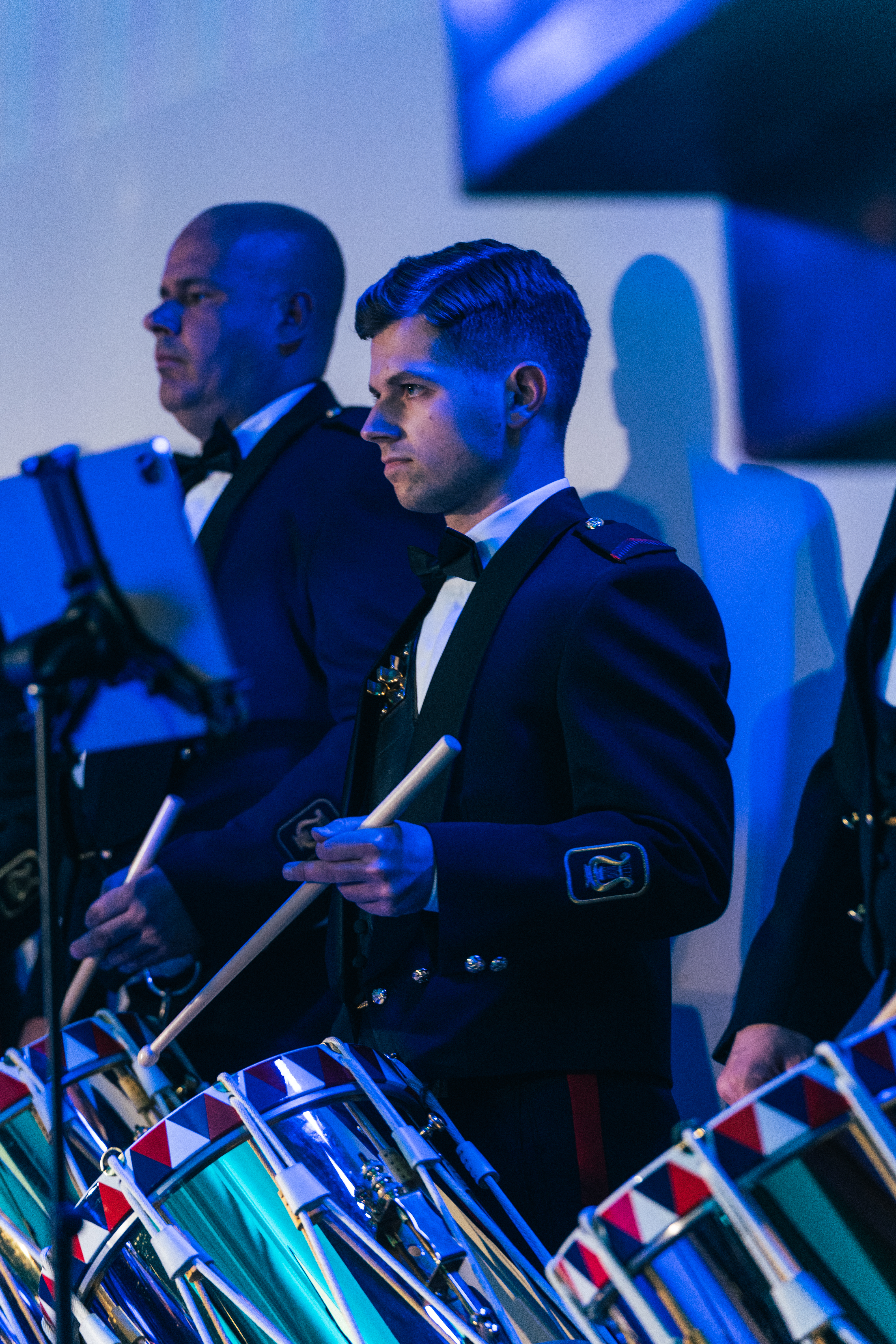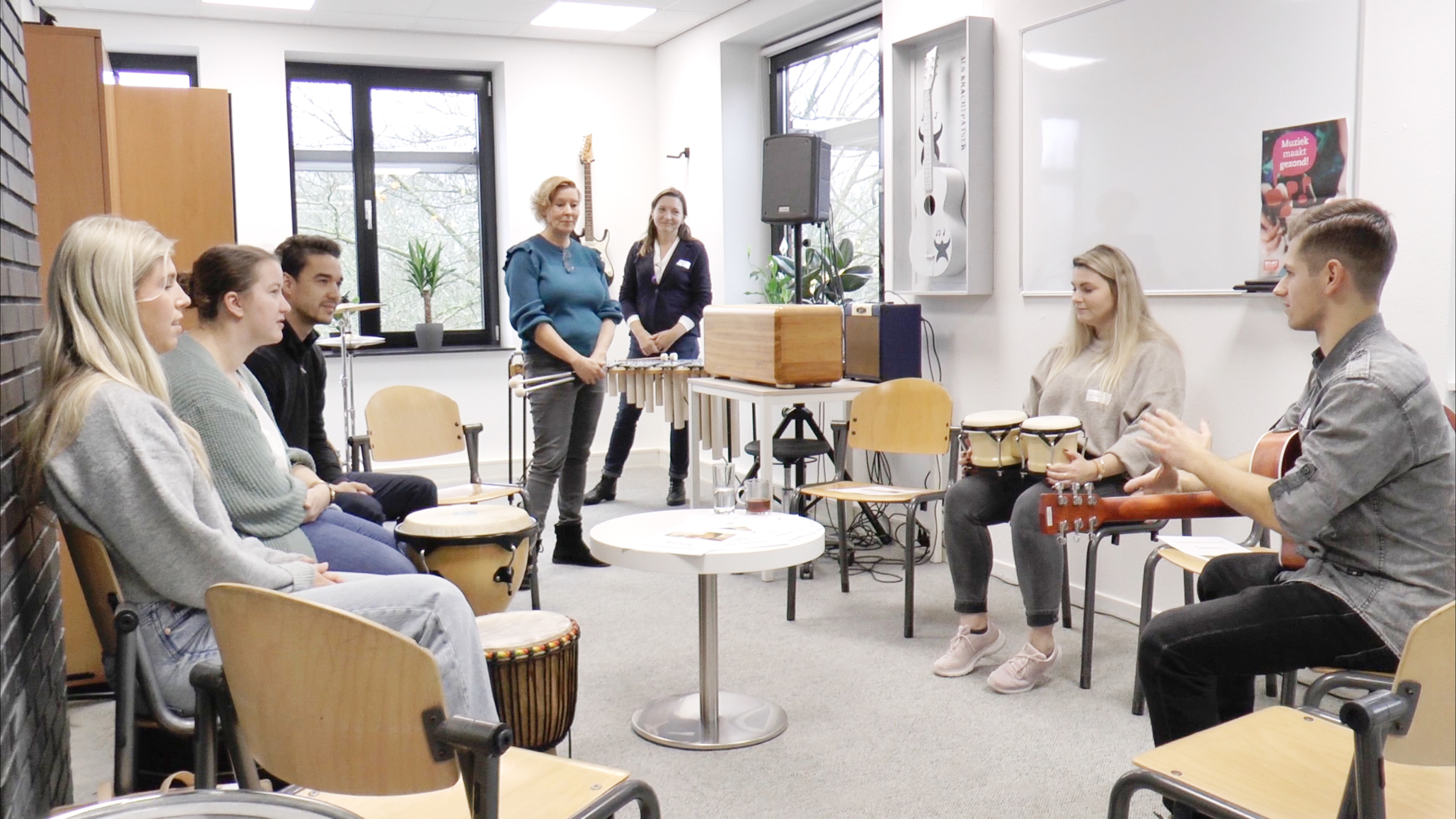Sietse Hulst graduated as a music therapist: “Music evokes memories and emotions hard to experience through spoken words alone”
- Music
One day accompanying a music therapist was enough to convince Sietse Hulst, who graduated from the Music Therapy programme at ArtEZ Academy of Music in Enschede in 2023, that this was what he wanted to do with his life. “Music is my passion, and being able to help people through it is a wonderful bonus.” We talked with him about life after ArtEZ, his fascination with the power of music and his dual role as musician and therapist.

Sietse’s journey into music therapy started with a drum kit in his bedroom. “I’ve been playing percussion since I was 9,” he says, “but after leaving secondary school I had no idea which path to take. It had to be something involving music, but what exactly? It was my mother, a care worker, who ended up suggesting that I shadow a music therapist.” It proved to be a brilliant move. Sietse soon found himself enrolling at ArtEZ, the only Academy of Music in the Netherlands to offer a programme in Music Therapy.
Really learn about yourself
Sietse describes the programme at ArtEZ as both tough and enjoyable. It helped him grow not only as a musician but also as an individual. “Those four years in Enschede flew by. It was certainly hectic at times, combining a music programme with a therapy programme. But I learned a lot from the experience.” The internships, especially in psychiatry, gave him valuable insights. “In such a demanding setting, you really learn about yourself. I noticed that I was becoming more confident and better at handling difficult situations. You sometimes work with intense groups, many with complex issues.”
Combined music therapist and musician
What does his daily routine look like now? Anything but monotonous. Sietse works three days a week as a music therapist at STEVIG, an institution for people with mild intellectual disabilities and forensic psychiatric and/or behavioural issues. Besides that, he plays in a military band and also works as a music therapist at a specialised mental healthcare institution. “It may sound like a busy schedule, but I still work a standard 40-hour week,” says Sietse. The variety is what makes it so enjoyable; every day is different. What I do now is a nice blend of working as a music therapist and as a musician.”
His work at STEVIG includes treating forensic clients, individuals who have psychiatric and/or behavioural problems as well as a criminal record. He finds this group particularly intriguing. “I’m deeply interested in the complexities of the human psyche. Music evokes memories and emotions that are hard to experience through spoken words alone, especially in clients with mild intellectual disabilities. With some clients, we begin with receptive music therapy, listening to selected pieces together. For others, I focus on active music therapy, where we create music ourselves. I’m fascinated by how an individual’s choice of instrument and their musical improvisation can reveal insights into their daily behaviours and thematic patterns.”
 Sietse in his role in a military band
Sietse in his role in a military band
Drummer in a military band
Alongside his role as a music therapist, Sietse spends one day a week with the armed forces, where he is a drummer in a military band, playing an important part in ceremonial events. He describes it as a completely different world, taking him to the most remarkable places. “The most memorable service I’ve performed was in Normandy, during the D-Day commemorations. It was incredibly moving and I felt deeply honoured to be there. As a musician, it’s an experience you never forget.”
Looking back, I would have made exactly the same choices”
Reflecting on his life now, Sietse never anticipated being where he is today. “When I began the programme, I had no idea where it would lead me. But I believe that everything happens as it is meant to. Looking back, I would have made exactly the same choices.” He says the programme offers ample opportunities to discover which client groups you enjoy working with as a music therapist. “If you’re still uncertain, I strongly recommend shadowing a music therapist to get a firsthand look at the profession. Throughout the programme, take advantage of every opportunity that comes your way. Explore different client groups, experiment and think about specialising. Often, excelling in one field is more valuable than having a broad but shallow skill set.”
Sietse remarks that the number of vacancies for music therapists is growing. “There is plenty of work available,” he says. “Vacancies are often spread across the country and beyond. You can start working immediately after completing the programme.’
Follow Sietse



